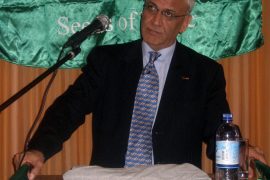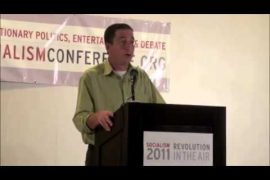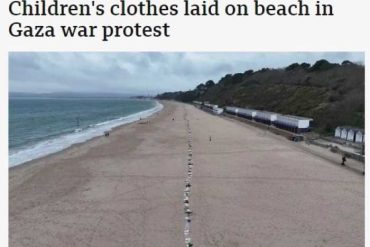Over the past few days my Twitter timeline has been dominated by Iranian ex-pats tearing out their virtual hair at the portrayal of the new Iranian president-elect by much of the Western media (including the BBC) as a “moderate” and a “reformer”. This might be a good time to remember that not too long ago various talking heads were using the same terms to describe Bashar al Assad.
The indiscriminate use of such adjectives by Western journalists puts them in risky territory, clouding the fact that Hassan Rohani only managed to get where he now is because there is absolutely no chance of his initiating any kind of reform which will threaten the grip of the theocracy ruling Iran. As Sohrab Ahmari writes in the WSJ: 
“So this is what democracy looks like in a theocratic dictatorship. Iran’s presidential campaign season kicked off last month when an unelected body of 12 Islamic jurists disqualified more than 600 candidates. Women were automatically out; so were Iranian Christians, Jews and even Sunni Muslims. The rest, including a former president, were purged for possessing insufficient revolutionary zeal. Eight regime loyalists made it onto the ballots. One emerged victorious on Saturday.”
Over half the word-count of an article about the opening of the new exhibition at Auschwitz last week, which appeared on the BBC News website’s Europe and Middle East pages on June 13th 2013, was dedicated to what the BBC termed “Iranian ‘threat'” – complete with scare quotes.
“Earlier in Warsaw, Mr Netanyahu accused Iran, one of Israel’s strongest foes, of planning a new Holocaust.” […]
“Mr Netanyahu used a visit to the Polish capital on Wednesday to warn that Iran was now a major threat to the Jews.
Iranians are going to the polls on Friday to elect a new president, with the hard-line incumbent, Mahmoud Ahmadinejad, not eligible for a third term.
Mr Netanyahu said the Iranian election on Friday would “change nothing” in the Islamic republic’s alleged quest for nuclear weapons.
“This is a regime that is building nuclear weapons with the expressed purpose to annihilate Israel’s six million Jews,” he said. “We will not allow this to happen. We will never allow another Holocaust.”
Tehran denies seeking to acquire nuclear weapons.
Iran is viewed as a threat in Israel because of its aggressive rhetoric, its support for militant groups in the region, its arsenal of long-range missiles and its nuclear work.
However, critics of the Israeli prime minister have accused him of citing the Holocaust too frequently in the context of Iran.
Aluf Benn, editor of liberal Israeli newspaper Haaretz, wrote in an editorial last week: “Shoah [Holocaust] warnings have taken over the political and military discourse.”
Another BBC article from June 16th was headlined “Iran election: Israel issues warning after Rouhani win” and opened:
“Israeli PM Benjamin Netanyahu has warned that international pressure on Iran must not be loosened in the wake of the election of reformist-backed Hassan Rouhani as president.
Mr Netanyahu said Iran’s nuclear programme must be stopped “by any means” and there should be no “wishful thinking” about Mr Rouhani’s victory.
The cleric won just over 50% of the vote in Friday’s election.
He said his election was a “victory of moderation over extremism”. “
Later in the report – presumably hiding behind the excuse of impartiality – the BBC once again promotes doubts about the Iranian regime’s nuclear intentions:
“Israel and some Western powers suspect Iran’s nuclear programme may be a front for making weapons, but Tehran insists it is purely peaceful.”
The synergistic themes in these two BBC articles are of a supposed new dawn of “moderation” in an Iran which the BBC is apparently not convinced has designs to develop a military nuclear capability, coupled with a message of Israeli over-reaction. Any objective assessment of those promoted themes must of course take into account that Iran’s president-elect is not the man ultimately in charge, as an article in The Tower points out:
“Rouhani’s win … should not be seen as a dramatic sign that Iran will change its line regarding either its nuclear policy or its involvement in Middle Eastern conflicts. Despite Rouhani’s declarations in the past that may suggest he seeks flexibility in the nuclear project, the reality in Iran is that these matters will remain in the hands of Khamenei and the men of the Revolutionary Guard.”
“Victory for a candidate who is perceived as more moderate yet still has the confidence of Khamenei, serves the regime in the best way. Externally, Iran today is in a very difficult situation with regard to sanctions and its international standing. A conservative president would only have increased Tehran’s isolation in the world. A victory for someone from the ‘moderate stream,’ however, will immediately bring certain countries in the international community to call for ‘giving a chance to dialogue with the Iranian moderates.’ They will ask for more time in order to encourage this stream, and it will take pressure off the regime.”
BBC speculations regarding a theoretical Israeli strike on Iran to prevent it from reaching military nuclear capability have been a regular feature for some years now – see for example here, here, here, here and here. Notably, the mirror question of whether Iran will attack Israel is not asked. The value of the BBC’s future coverage of the subject will of course depend upon how quickly it manages to disavail itself of the notion that anything significant has changed in Tehran since Rohani’s election.





